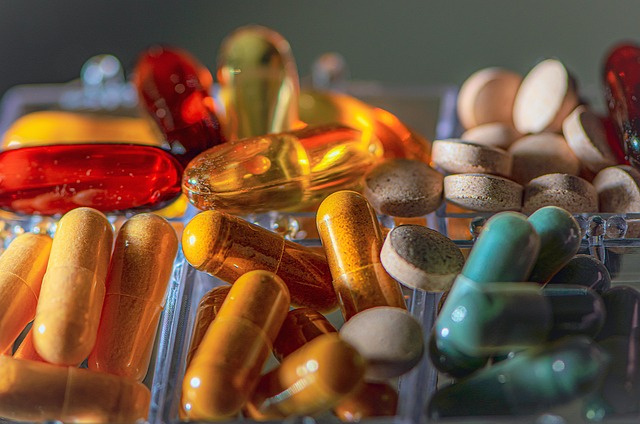Exploring Natural Remedies for Erectile Dysfunction with Herbal and Plant-Based Approaches
Dive into the world of herbal and plant-based solutions for erectile dysfunction (ED). Discover the potential benefits and scientific evidence behind these natural remedies, providing a holistic perspective on tackling this common issue. Learn about safe and effective alternatives that may offer a gentler approach to addressing ED, all while considering the importance of informed decision-making and consulting with healthcare professionals.

What is erectile dysfunction and how common is it?
Erectile dysfunction is the inability to achieve or maintain an erection sufficient for satisfactory sexual performance. It’s a prevalent condition that becomes more common with age. According to studies, approximately 30 million men in the United States experience ED to some degree. While occasional difficulties are normal, persistent problems can significantly affect relationships and self-esteem.
Which herbs and plants are commonly used for ED treatment?
Several herbs and plants have been traditionally used to address erectile dysfunction:
-
Panax ginseng: Often called “herbal Viagra,” this root may improve erectile function and sexual satisfaction.
-
Yohimbine: Derived from the bark of an African tree, yohimbine has shown potential in treating ED.
-
Ginkgo biloba: This ancient Chinese herb may enhance blood flow and improve erectile function.
-
Maca root: Native to Peru, maca is believed to boost libido and sexual performance.
-
L-arginine: This amino acid is found in many foods and may help improve blood flow to the penis.
How do these natural remedies work to address ED?
Natural remedies for ED typically work through various mechanisms:
-
Improving blood flow: Many herbs, like ginkgo biloba and L-arginine, may enhance circulation to the genital area.
-
Boosting testosterone levels: Some plants, such as fenugreek and tribulus terrestris, might help increase testosterone production.
-
Reducing stress and anxiety: Adaptogens like ashwagandha may help manage stress, which can contribute to ED.
-
Enhancing libido: Certain herbs, including maca and ginseng, are believed to increase sexual desire.
What scientific evidence supports these natural approaches?
While anecdotal evidence abounds, scientific research on natural ED remedies is still evolving:
-
Panax ginseng: Several studies have shown promising results, with improvements in erectile function reported.
-
Yohimbine: Research suggests it may be effective for some types of ED, particularly psychogenic ED.
-
L-arginine: Studies indicate potential benefits, especially when combined with other supplements like pycnogenol.
-
Maca: Some research shows improvements in sexual desire, though more studies are needed on its effects on ED.
It’s important to note that while some natural remedies show promise, more extensive clinical trials are necessary to fully understand their efficacy and safety.
Are there any risks or side effects associated with herbal ED treatments?
When considering natural remedies for ED, it’s crucial to be aware of potential risks and side effects:
-
Interactions with medications: Some herbs can interact with prescription drugs, potentially causing adverse effects.
-
Quality and purity concerns: Herbal supplements are not regulated as strictly as pharmaceuticals, raising issues of contamination or mislabeling.
-
Allergic reactions: Some individuals may be allergic to certain herbs or plants.
-
Overuse or misuse: Taking excessive amounts of any supplement can lead to unwanted side effects.
-
Delayed treatment: Relying solely on natural remedies may delay proper medical diagnosis and treatment of underlying conditions.
How do natural remedies compare to conventional ED treatments?
When comparing natural remedies to conventional ED treatments, several factors come into play:
-
Efficacy: Prescription medications like sildenafil (Viagra) and tadalafil (Cialis) have well-established efficacy backed by extensive clinical trials. Natural remedies, while promising, often lack the same level of scientific evidence.
-
Speed of action: Conventional ED medications typically work within 30-60 minutes, while natural remedies may require longer-term use to see effects.
-
Side effects: Both approaches can have side effects, but those of prescription medications are generally better understood and documented.
-
Cost: Natural remedies can be less expensive than prescription drugs, especially for long-term use.
| Treatment Option | Average Cost (per month) | Typical Efficacy | Onset of Action |
|---|---|---|---|
| Sildenafil (Viagra) | $20 - $70 | High | 30-60 minutes |
| Tadalafil (Cialis) | $50 - $100 | High | 30-60 minutes |
| Panax Ginseng | $15 - $40 | Moderate | 4-8 weeks |
| L-arginine | $10 - $30 | Low to Moderate | 2-3 months |
| Maca Root | $15 - $35 | Low to Moderate | 6-12 weeks |
Prices, rates, or cost estimates mentioned in this article are based on the latest available information but may change over time. Independent research is advised before making financial decisions.
In conclusion, while natural remedies and plant-based approaches offer potential alternatives for addressing erectile dysfunction, their efficacy and safety profiles are not as well-established as conventional treatments. It’s crucial for individuals experiencing ED to consult with healthcare professionals before starting any new treatment regimen, whether natural or pharmaceutical. A comprehensive approach that considers lifestyle factors, underlying health conditions, and individual preferences is often the most effective way to address erectile dysfunction.
This article is for informational purposes only and should not be considered medical advice. Please consult a qualified healthcare professional for personalized guidance and treatment.




